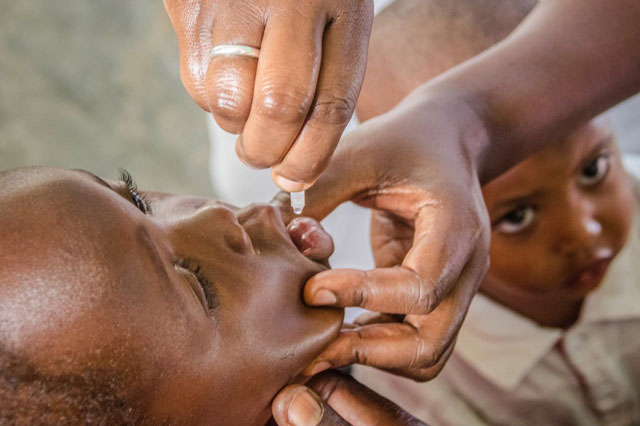
Kampala, Uganda | THE INDEPENDENT | The Ministry of Health has warned parents not to misinterpret Tuesday’s declaration by the World Health Organization that Africa is polio-free.
In an interview with Dr Alfred Driwale, the manager of the Uganda National Expanded Programme on Immunization (UNEPI) in the Ministry of Health (MOH), he said people shouldn’t stop taking their children for their routine immunization.
He said Uganda was declared polio free way back in 1996 but routine immunization has continued and it’s usually revamped by booster doses when a case is suspected or confirmed in the neighbouring countries to avoid any imported cases from happening here.
The certification by WHO came after no country in Africa registered a case for the last four years, but elsewhere in countries like Afghanistan and Pakistan, cases have recently been registered, Driwale says this means Africa remains at risk of getting a polio case.
For the case of Uganda however, he notes that while routine immunization continues, what is likely to change with the certification is a reduction of polio campaigns.
He said the change in plan for Uganda is shifting from oral to exclusively giving children the injectable polio vaccine to cushion against the likelihood of children acquiring vaccine-induced polio.
Vaccine-induced polio happens when the weakened live virus in the oral polio vaccine passes among under-immunized populations and over time changes to a form that can cause paralysis.
This kind of polio happens in places where there’s low coverage of immunization. Driwale says that kind of polio doesn’t worry healthcare managers in Uganda with the wide coverage of immunization services.
Children are immunized against polio at birth, at 6 weeks, 10 weeks and 14 weeks old and given booster doses targeting children of five years and below through public health campaigns whenever there is a threat.
Up to two million children are immunized against polio annually in Uganda.
******
URN
 The Independent Uganda: You get the Truth we Pay the Price
The Independent Uganda: You get the Truth we Pay the Price



